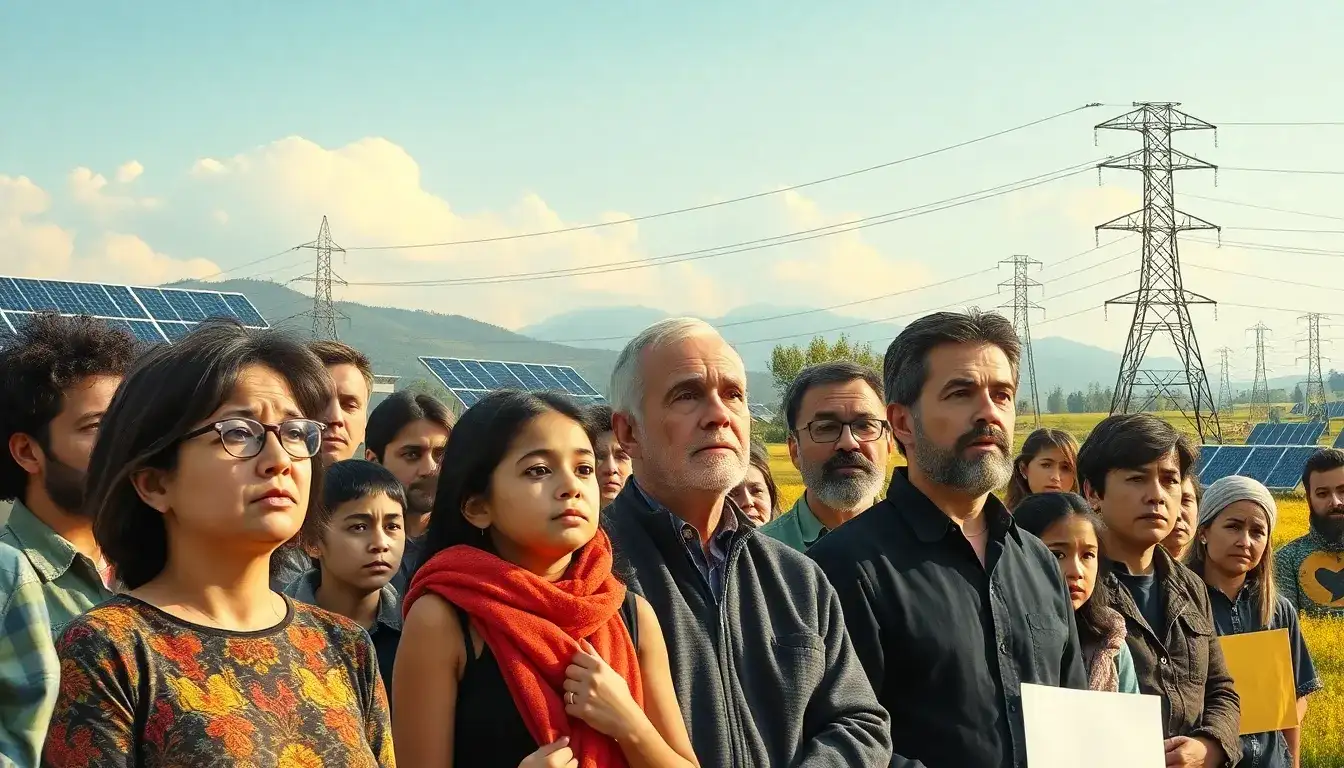Energy Storage Proposals Face Pushback from Some Communities
While the deployment of energy storage systems in the U.S. has seen remarkable growth in recent years, some communities are expressing concerns over safety and spatial requirements associated with these installations. Recent incidents, such as a fire at an energy storage facility in California, have intensified scrutiny regarding the safety of this technology. Although community opposition has not yet significantly hindered the overall expansion of energy storage and renewable energy projects nationwide, the increasing number of objections from various communities is a trend that merits attention.
A recent report from the American Clean Power Association highlights the resilience of the U.S. energy storage and renewable energy markets, indicating that the energy storage sector continued its robust growth in the third quarter of 2024. The grid-scale segment alone set a new record, deploying 3,431 megawatts and 9,188 megawatt-hours.
Residents in multiple areas have raised alarms about the safety of energy storage facilities, particularly those utilizing lithium-ion technology. In response to these concerns, state utility regulators are beginning to tighten safety regulations for energy storage installations.
California Developments
In early September 2024, a fire occurred at a San Diego Gas & Electric (SDG&E) energy storage facility. The incident, reported on September 5, prompted a swift response from local fire and safety crews. Fortunately, the fire was contained to one of the battery storage containers, and there were no injuries reported.
In January 2024, Solano County enacted a two-year moratorium on new front-of-the-meter battery energy storage systems, allowing planning staff to develop land use standards that prioritize public safety. Likewise, in October 2024, the Escondido City Council passed an Interim Ordinance to halt the approval of new commercial battery energy storage systems, emphasizing the need to address rising concerns.
Conversely, not all communities in California are opting for moratoriums. For instance, on September 11, the San Diego County Board of Supervisors unanimously rejected a proposed moratorium on battery energy storage systems. The California Energy Storage Alliance hailed this decision as a significant win for the industry, indicating that proactive educational efforts can counteract public opposition fueled by fear and misinformation. Instead of a moratorium, the Board opted to enhance the existing permitting process with new safety requirements.
Recent Fire Incidents
A notable fire broke out on January 16 at the Moss Landing Energy Storage Facility in Morro Bay, California, resulting in an evacuation of nearby residents. This facility recently completed a major expansion, bringing its total capacity to 750 MW/3,000 MWh. In response to growing safety concerns, the California Public Utilities Commission (CPUC) proposed new regulations aimed at bolstering the safety of battery energy storage facilities. This proposal includes implementing new standards for maintenance and emergency response plans as mandated by Senate Bill 1383.
The CPUC is also investigating the January fire incident at the Moss Landing facility, with its Safety and Enforcement Division actively seeking information and conducting site visits.
Legislative Actions and Future Needs
As California’s battery storage capacity now exceeds 20% of its peak demand, projected needs for battery storage are expected to reach 52,000 MW by 2045. In January, California Assemblymember Dawn Addis introduced the Battery Energy Safety & Accountability Act (AB 303), which aims to enhance safety standards and restore local oversight for energy storage projects.
Developments in New York
New York State has witnessed several communities impose moratoriums on energy storage projects. For example, the Town of Oyster Bay extended its construction moratorium on battery energy storage systems due to safety concerns raised by multiple incidents in the state.
In February, Governor Kathy Hochul released recommendations from an Inter-Agency Fire Safety Working Group, which included proposed updates to the Fire Code of New York State. These updates aim to enhance safety standards for battery energy storage systems and solidify New York’s leadership in responsible energy storage development.
Broader Concerns Across the Nation
Concerns regarding the safety of energy storage facilities are not isolated to California and New York. In Texas, the City Council of Katy rejected a special use permit for a proposed energy storage facility, citing worries about its proximity to schools and homes.
Opposition to energy storage projects has also emerged in states like Indiana, Washington, and Massachusetts. However, some alternative storage technologies, such as ESS Tech’s iron flow technology, promise enhanced safety characteristics, including non-flammable and non-toxic materials.
As public power utilities increasingly adopt these safer technologies, the path to achieving renewable energy goals remains contingent on addressing community concerns and ensuring the safety of energy storage systems.
Original article by NenPower, If reposted, please credit the source: https://nenpower.com/blog/communities-express-concerns-over-energy-storage-proposals-amid-safety-issues/



